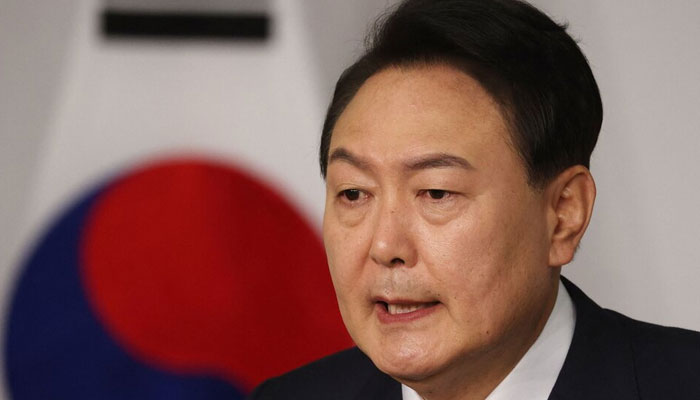South Korean President Declares Emergency Martial Law Amid Political Crisis
SEOUL: South Korean President Yoon Suk Yeol declared a state of “emergency martial law” on Tuesday, accusing the opposition of destabilizing the government by sympathizing with North Korea and paralyzing the country’s democratic processes. The announcement, made during a televised briefing, marks a dramatic escalation in the ongoing political standoff between Yoon’s conservative People Power Party (PPP) and the opposition-controlled Democratic Party.
In his address, Yoon vowed to “eradicate pro-North Korean forces” and safeguard the “constitutional democratic order,” although the specifics of the martial law and its potential impact on governance remain unclear. The move comes amid growing tensions in the South Korean National Assembly, where the PPP has been struggling to pass legislation due to the opposition’s control of parliament.
The two main political parties have been locked in a fierce battle over key issues, including next year’s budget bill. Yoon’s approval rating has taken a hit in recent months, as his administration faces criticism over allegations of corruption involving his wife and top officials. Despite widespread calls for independent investigations into these scandals, Yoon has repeatedly dismissed the demands, further intensifying political friction.
The Democratic Party reacted swiftly to Yoon’s declaration, reportedly convening an emergency meeting of its lawmakers in response. While details of their response remain scarce, the opposition has long accused Yoon of undermining democratic institutions and curbing political opposition.
Read More: The Purpose Behind North Korea’s ‘Waste Balloon Provocation’
The announcement of martial law has sparked concerns about the future of South Korea’s democratic framework and how the country will navigate this unprecedented political crisis. As the situation develops, many are questioning how this move will affect the balance of power between the executive and legislative branches.





Comments are closed, but trackbacks and pingbacks are open.